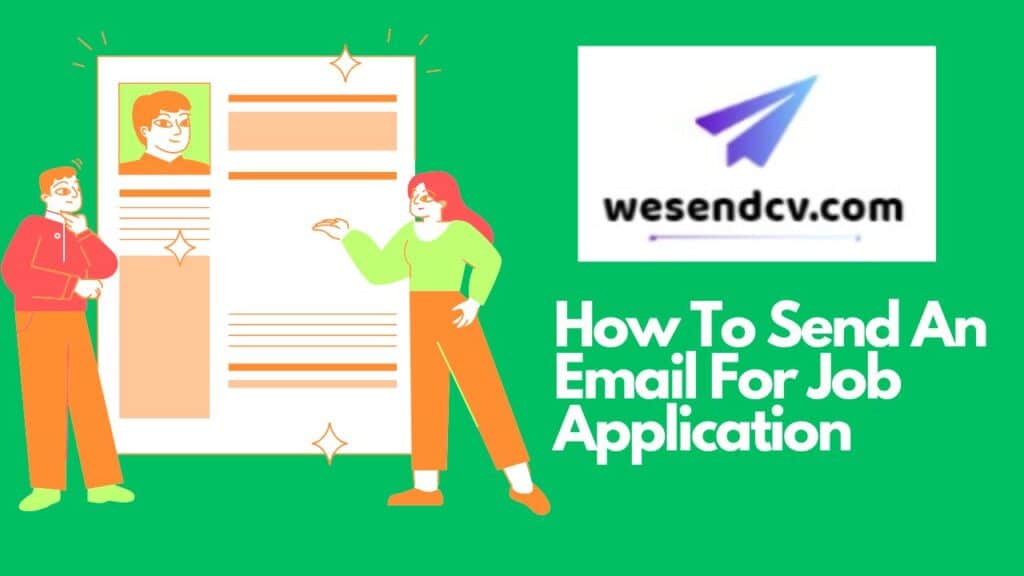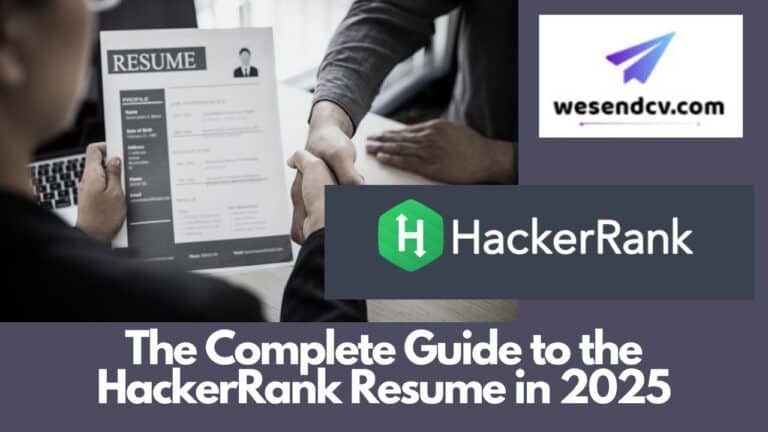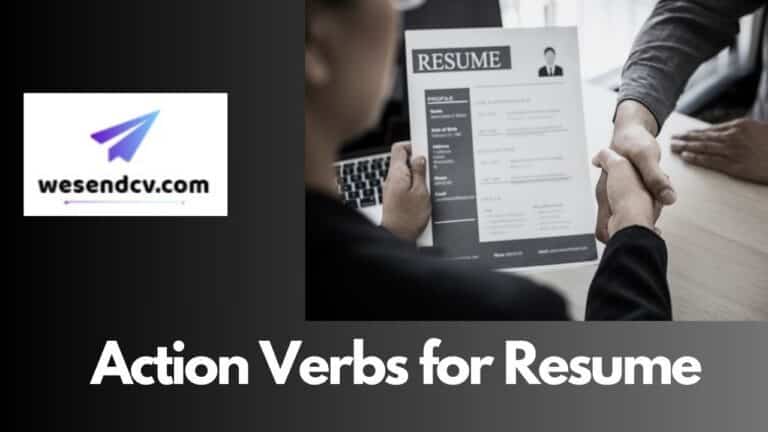Main Highlights of Content
ToggleHow to Send an Email for Job Application: A Comprehensive Guide
Introduction
In today’s digital era, most employers prefer receiving job applications via email. Sending a job application through email is a fast, efficient, and professional way to reach potential employers. However, there is a right and wrong way to do it. A well-crafted job application email can significantly boost your chances of getting noticed, while a poorly written one might be ignored.
In this guide, you will learn how to send an email for a job application, including formatting tips, email etiquette, and step-by-step instructions to ensure your message stands out.
For a detailed step-by-step guide with examples, check out How to Send Your Resume by Email: A Step-by-Step Guide with Examples.
Why Email is Crucial for Job Applications
Many companies use email as the primary method of receiving applications because it’s fast, traceable, and simple. However, the competition is fierce. Recruiters often receive hundreds of emails daily, so it is crucial to craft an email that is both professional and attention-grabbing.
Benefits of Sending a Job Application via Email:
- Direct communication with hiring managers or HR departments.
- Quick delivery and acknowledgment of your application.
- Easy to attach documents and links to portfolios.
- Allows for a personalized approach.
For further tips on sending resumes effectively via email, read How to Send Your Resume via Email.
Before You Hit Send: Key Preparations
1. Research the Employer
Before drafting your email, research the company and the role you’re applying for. This will help you tailor your message and demonstrate your genuine interest.
2. Prepare Your Resume and Cover Letter
Ensure that your resume is updated and tailored to the specific job. Include relevant skills, experience, and accomplishments that align with the job description.
Need help polishing your resume? Use the Free Resume Tools to create a professional resume that stands out.
3. Choose the Right File Format
When attaching your resume and cover letter, use widely accepted formats like:
- PDF (to maintain formatting)
- .DOCX (if requested in the job posting)
Pro Tip: Name your files clearly, e.g., John_Doe_Resume.pdf or Jane_Smith_CoverLetter.docx to make it easy for recruiters to identify.
Step-by-Step Guide to Sending a Job Application Email
Step 1: Write a Clear and Professional Subject Line
The subject line is the first thing a recruiter sees. A strong subject line ensures your email is opened and not ignored.
Examples of Effective Subject Lines:
- Application for [Job Title] – [Your Name]
- [Your Name] – [Position] Application
- Job Application: [Job Title], [Your Name]
Step 2: Use a Professional Email Address
Your email address should reflect professionalism. Avoid using informal or personal email addresses.
Examples of Appropriate Email Addresses:
Avoid:
Step 3: Craft a Concise and Polite Email Body
The body of your email should be straightforward, polite, and convey your intent clearly.
Key Elements to Include:
- Greeting: Address the recipient by name if possible (e.g., Dear Mr. Smith).
- Introduction: Briefly introduce yourself and mention the role you’re applying for.
- Purpose: State your interest in the position and highlight key qualifications.
- Attachments: Mention that your resume and cover letter are attached.
- Call-to-Action: Politely ask for consideration and express interest in an interview.
- Closing: Use professional closings like Sincerely or Best regards.
For more email body examples, visit What to Write in an Email When Sending a Resume.
Sample Email Body:
vbnetCopyEditSubject: Application for Marketing Manager – Jane Doe
Dear [Hiring Manager's Name],
I hope this message finds you well. I am writing to express my interest in the Marketing Manager position at [Company Name], as advertised. With a background in digital marketing and over five years of experience managing marketing campaigns, I am confident in my ability to contribute significantly to your team.
Please find attached my resume and cover letter for your review. I would appreciate the opportunity to discuss how my skills and experience align with the needs of your company.
Thank you for considering my application. I look forward to the possibility of contributing to your organization.
Sincerely,
Jane Doe
[Phone Number]
[LinkedIn Profile]
Step 4: Attach Your Resume and Cover Letter Correctly
- Attach the resume and cover letter as separate files unless the employer specifies otherwise.
- Double-check the attachments before sending.
Step 5: Proofread and Check for Errors
Before hitting “send,” thoroughly proofread your email for grammatical errors, typos, and formatting mistakes. Recruiters appreciate attention to detail.
Step 6: Send a Test Email
Send a test email to yourself to ensure:
- Attachments open correctly.
- The email layout is as intended.
- No formatting issues exist.
Tips for a Successful Job Application Email
1. Personalize Each Email
Avoid sending generic emails. Tailor your email for each job you apply to, mentioning specific skills or experiences that align with the job posting.
2. Keep It Concise
Recruiters are busy. Keep your email clear and to the point—ideally under 200 words.
3. Follow Employer Instructions
If the job posting includes specific instructions for the subject line or file formats, follow them carefully.
4. Use a Signature Block
Include a professional email signature with your contact information.
Example:
makefileCopyEditBest regards,
John Smith
Email: [email protected]
Phone: (123) 456-7890
LinkedIn: linkedin.com/in/johnsmith
Common Mistakes to Avoid
- Using Informal Language: Maintain a professional tone throughout your email.
- Forgetting Attachments: Always double-check that your resume and cover letter are attached.
- Spelling Errors in Subject Line or Body: Simple mistakes can leave a bad impression.
- Sending Generic Emails: Tailor each application to the job you’re applying for.
- Overly Long Emails: Recruiters don’t have time to read lengthy emails.
Sample Email Templates for Job Applications
Template 1: Formal Job Application
pgsqlCopyEditSubject: Application for Software Engineer – John Doe
Dear Hiring Manager,
I am writing to express my interest in the Software Engineer position at [Company Name], as advertised on [Job Board/Website]. With a degree in Computer Science and over three years of experience in backend development, I am excited about the opportunity to contribute to your team.
Please find attached my resume and cover letter for your consideration. I look forward to the possibility of discussing how my skills align with your company’s goals.
Thank you for your time and consideration.
Sincerely,
John Doe
(555) 555-5555
[email protected]
Template 2: Application Following a Job Fair or Networking Event
pgsqlCopyEditSubject: Follow-Up from [Event Name] – Application for Marketing Assistant
Dear [Hiring Manager’s Name],
It was a pleasure meeting you at the [Job Fair/Networking Event] on [Date]. I was particularly interested in learning more about [Company Name] and the exciting work your team is doing in digital marketing.
I am writing to formally apply for the Marketing Assistant role. I have attached my resume and cover letter for your consideration. I hope we can discuss how my background in content creation and SEO could benefit your team.
Thank you for your time and consideration.
Best regards,
Emily Clark
(444) 444-4444
[email protected]
For more step-by-step examples, explore How to Send Your CV by Email: A Step-by-Step Guide with Examples.
What to Do After Sending Your Job Application Email
1. Wait for 5–7 Business Days
Allow the recruiter some time to review your application.
2. Send a Follow-Up Email
If you haven’t heard back after a week, a polite follow-up can help keep your application top-of-mind.
Follow-Up Email Example:
pgsqlCopyEditSubject: Following Up on [Job Title] Application – [Your Name]
Dear [Hiring Manager’s Name],
I hope this email finds you well. I wanted to follow up on my recent application for the [Job Title] role submitted on [Date]. I am very enthusiastic about the opportunity to contribute to [Company Name] and would love the chance to discuss how my skills could benefit your team.
Thank you for considering my application. I look forward to hearing from you.
Best regards,
John Doe
Conclusion
Sending an email for a job application may seem simple, but small details can make a big difference. Crafting a professional, personalized, and error-free email increases your chances of catching a recruiter’s eye and landing an interview.
Key Takeaways:
- Use a clear subject line and a professional email address.
- Keep your email concise and tailored to the role.
- Proofread carefully and double-check attachments.
- Follow up if you haven’t received a response within a week.
For further guidance and tools to enhance your job search, explore Free Resume Tools and related articles on WeSendCV.
By following these best practices, you will present yourself as a professional candidate and maximize your chances of securing your desired job.







